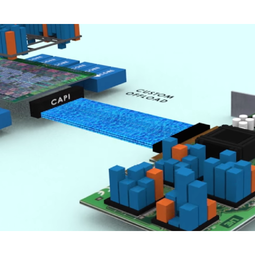
Published on 08/24/2016 | Market Sizing
Information Technology represents one of the most profound revolutions mankind has experienced. Clearly, the socio-political impact of IT has been significant in its own right, but the advent of these technologies also created tremendous wealth building opportunities for many individuals and companies. The storied valley entrepreneur who hacks away in an unlit basement and then makes billions when his product hits the mainstream, is the stuff of legend.
Today, this number hovers somewhere around 4 billion, and it includes laptops, tablets, smartphones and traditional PCs. Microsoft, Oracle, Apple, Dell, Google – you name it. This one number – 4 billion – is what accounts, directly and indirectly, for the entire IT industry’s revenue. As long as this number grows in a moderate linear fashion, incumbents will likely stay incumbents and inertia will preserve their market position. The last time we witnessed mass disruption in the IT industry was with the success of the Smartphone and Tablet form factors. Mobile-driven market expansion made dominance in the PC arena less important than it once was, and created space for new competitors to emerge and disrupt the status-quo. That last displacement, which unseated Microsoft and placed Apple and Samsung on the throne, was powered by market growth that took us from a billion or so units, to about four billion.
The Internet of Things phenomenon, also referred to by some as ubiquitous or pervasive computing, is poised to drive a ten-fold market expansion in less than a decade. You can look at Cisco’s projections, or those of your favorite analyst. The net result is the same. Soon, we will have anywhere from 30-50 billion computational devices connected to the network. Each one of these will run software, create data, implement actions and unearth insight. For the IT industry this kind of massive market expansion carries significant implications. First, unless incumbents adapt to make their offerings relevant to “Things”, they will be displaced. A gorilla who controls 30% of a 4 billion unit market is rendered a baby chimp overnight if the market expands to 50 billion units and the gorilla is unable to stay relevant to the new class of devices driving the expansion. Second, startups – particularly software startups – have an opportunity ahead of them like never before in history. We will see companies on both the consumer and industrial sides of IoT go from zero to hero in no time flat. Get your smartwatch adopted widely and you may be selling more units than 30 year veterans of the PC industry… over night. Get your automobile performance monitoring app adopted broadly and you may count as many customers as giants like Microsoft do. Third, this market expansion will soon result in the creation of more digital data annually than has been created in the entire prior history of man. What will we do with the data? I think we’ll store it, transform it, grok it, compute with it, derive insight from it, learn from it, predict with it and do much, much more. This data-driven design is going to be transformative for the software industry and for how software is written. Software that intelligently develops insights from massive quantities of data will become the most important kind of software (more on this fascinating topic in a future post). Fourth, as a web of network connected sensors and actuators make it possible for software to interact more easily with the real world, “apps” will increasingly drive real-world action. This represents a qualitative jump in the kind of capability IT enables and it will lead to a brave new world full of applications we cannot yet imagine. Driverless cars and robots are simply one manifestation of this phenomenon, but throughout industry and, indeed, in the home, the impact of software actuation will be felt in a huge number of ways. A class of products and companies focused on using digital “stuff” to do physical “stuff” will emerge. This is a powerful model to begin to think about new opportunities just beyond the horizon. This article originally appeared on SparkCognition. You can read the original post here .
Keith Moore is the Senior Product Manager at SparkCognition and is responsible for the development of both their IoT (SparkPredict) and Cyber Security (SparkSecure) product lines. He specializes in applying advanced data science and natural language processing algorithms to complex data sets. He has previous experience working for test and measurement giant National Instruments as a analog to digital converter and vibration software product manager. Prior to that, Keith developed client software solutions for major oil & gas, aerospace, and semiconductor organizations. He previously served as a board member of Pi Kappa Phi fraternity and still serves as a volunteer on the alumni engagement committee. Keith graduated from the University of Tennessee Summa Cum Laude with a degree in Mechanical Engineering, and currently volunteers as the president of the Austin Volunteers Alumni Club President.